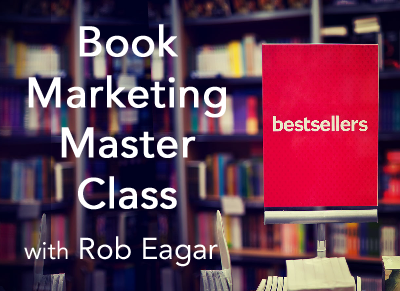Every author wants their book to succeed. However, some authors focus so much on writing that they overlook the importance of marketing and sales. The goal of writing isn’t necessarily to get rich, and I use the word “poor” as a loose reference to Robert Kiyosaki’s popular book, Rich Dad, Poor Dad. There are noble objectives beyond writing for money, such as influencing society, encouraging those in need, and entertaining people who need an escape after a hard day.
Yet, if your writing doesn’t become financially self-sustaining, then your career will be brief. I’ve met a lot of writers who wrote good books but were forced to quit due to a lack of income. After working in publishing for over 10 years, here are three key differences I’ve noticed between “rich” authors and “poor” authors:
Poor Authors think they need a good book.
Rich Authors know they need a good marketing plan.
Poor authors believe that if they write a good book, it will automatically sell itself. However, this notion is unrealistic when you’re competing with over 1,000,000 other “good” books published every year. Good writing alone won’t cut through all of the competition. In addition, poor authors expect someone else, such as their publisher, to do all of the marketing. Yet, cash-strapped publishers typically restrict their limited marketing budgets only to their big-name authors.
Rich authors don’t just write good books. They know success hinges upon writing a good marketing plan that will generate sales. Marketing is embraced, rather than shunned. Likewise, publishers prefer savvy authors who define their readership, differentiate their book from the competition, and execute creative ways to promote their message.
Poor Authors rely on tiny royalties from books.
Rich Authors rely on lucrative income from spin-off products.
Poor authors try to pay their bills by writing as many books as possible. They live off of advances and dream of royalty checks. Yet, few writers can survive on a $1.00 royalty. Sadly, this one-dimensional mindset blinds them to other streams of income. Some authors even think the best way to sell a book is to quickly write another book.
Rich authors realize their book is a pathway to more lucrative opportunities called “spin-off products.” For example, I’ve used content from one of my $10 books to create a $400 video study. Rich authors know that people like to learn in various ways. If you limit your message to just a book, then you limit both your income and influence. But, when you focus on turning your book’s content into other formats, the revenue potential can be endless. For example, a nonfiction book can be turned into speaking seminars, consulting, coaching sessions, webinars, online courses, etc. A fiction book can generate income from associated audio book formats, movie rights, short story ebooks, sequels, prequels, etc. The options are numerous.
Poor Authors depend on publicity.
Rich Authors depend on exposure they control.
Poor authors rely on other people and organizations to generate awareness for their books, which is called “publicity.” But, it’s like a parent abdicating responsibility for raising their own child. The problem with relying on publicity is that the process is expensive and erodes an author’s control over his or her own success. That’s because media interviews on radio and television are very difficult to secure. You can’t force your way onto national television. You have to “pay to play” and compete with rich celebrities for the same interview space.
Rich authors may use publicity, but they get exposure to millions of readers using techniques they can control. For instance, prosperous authors invest in targeted advertising on Amazon, Facebook, and Bookbub that reaches avid readers in their genre. Likewise, they build a big email list that they own, create marketing partnerships with well-known influencers, schedule exclusive webinars, and secure podcast interviews for free. Rich authors generate widespread exposure for their books without having to rely on someone else.
Based on these three differences, where do you stand?
Are you stuck in a poverty mentality? Or, do you employ an abundance mentality that leads you to invest in marketing, create spinoff products, and leverage exposure you can control?
Becoming a rich author is more about your mindset than your bank account.
Don’t let your books sit in the poor house. Think like a rich author and take control over your writing career.
Want to master the skills of marketing a book?
I’ve coached some of the biggest author names in publishing. Discover how to apply my proven book marketing secrets to your books.
Authors who are serious about growing their careers get serious results from my Book Marketing Master Class.
Money photo by John Guccione www.advergroup.com from Pexels

What if you feel you’ve done all that, and your book still hasn’t sold up to your publishers’ expectations? How can build a better platform for the next time? Or is it all over after one or two books don’t sell?